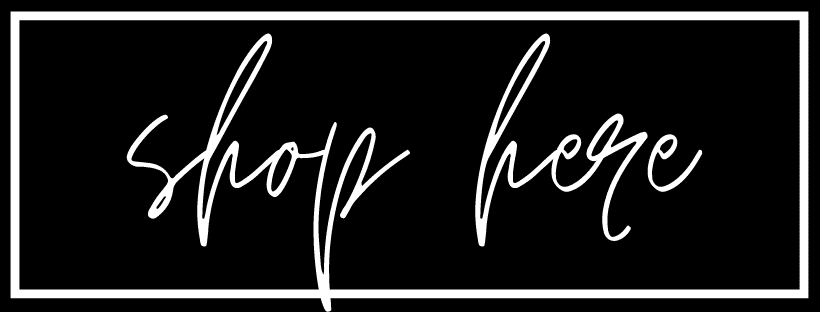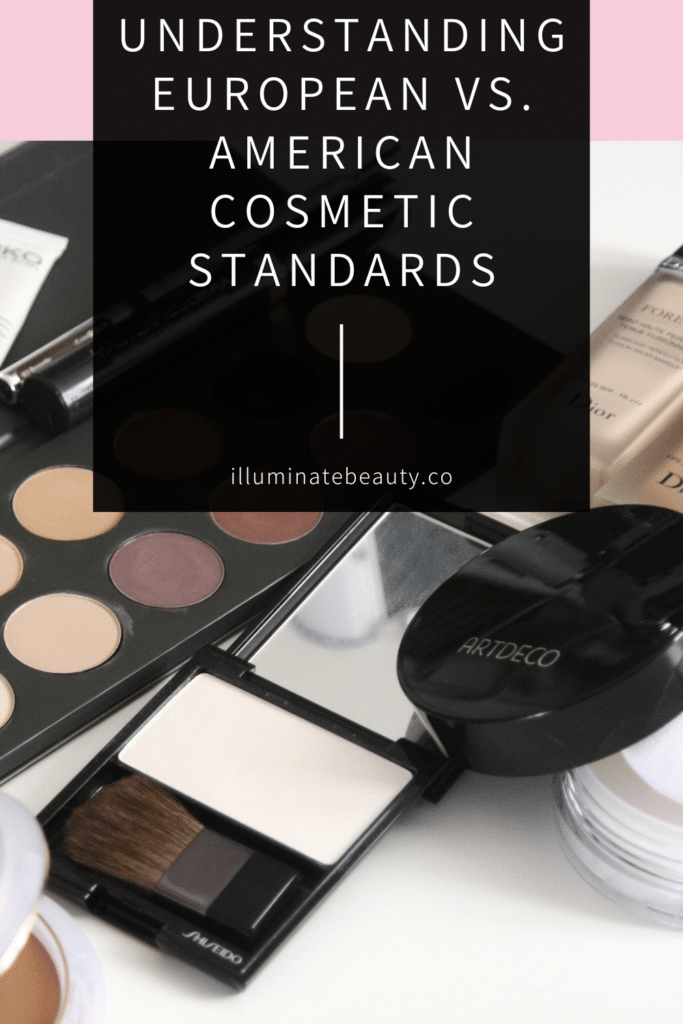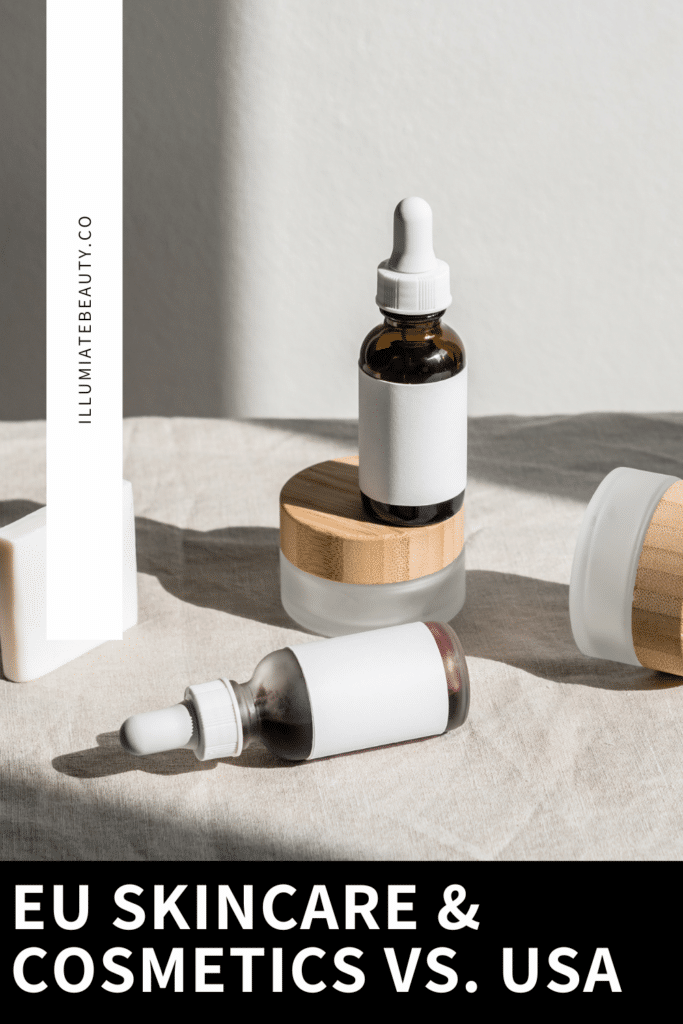There are so many beauty products on the market! They all claim to be great and do great things for our skin, but are they truly great for us?? Understanding European vs. American cosmetic standards is important so we can know what ingredients we should be using and staying away from when it comes to our makeup and skincare routines.
What is Clean Beauty?
Clean beauty is a term used to describe makeup and skincare products that are free from harmful chemicals and ingredients. Some of these harmful ingredients include sulfates, parabens, phthalates, synthetic fragrances, and other preservatives. Clean beauty products aim to create their products with higher standards and more natural ingredients that are better for our bodies.
What are European Cosmetic and Skincare Standards?
European cosmetic standards refer to the regulations and guidelines set forth by the European Union (EU) regarding the safety, quality, and labeling of cosmetic products sold within the EU market.
Key aspects of European cosmetic standards include:
- Safety Assessment: Before a cosmetic product is placed on the market, it must undergo a safety assessment by a qualified person, verifying its safety for human health. This includes evaluating ingredients for potential risks and ensuring compliance with restrictions on certain substances.
- Product Information File (PIF): Manufacturers or importers are required to maintain a Product Information File for each cosmetic product they market within the EU. This file contains detailed information about the product, including its formulation, safety assessment, and labeling.
- Notification: Cosmetic products must be notified to the European Commission through the Cosmetic Products Notification Portal (CPNP) before they are placed on the market. This allows for monitoring and regulatory oversight.
- Labeling Requirements: Cosmetic products sold in the EU must have labels that comply with specific requirements regarding ingredient listing, product function, manufacturer information, batch number, expiration date, and safety warnings.
- Prohibited and Restricted Substances: Certain substances are prohibited or restricted in cosmetics due to safety concerns. The EU maintains a list of banned substances and sets maximum allowable concentrations for others.
- Good Manufacturing Practice (GMP): Manufacturers must adhere to GMP guidelines to ensure the quality and safety of cosmetic products during the manufacturing process.
- Testing Bans: The EU has enacted strict regulations regarding animal testing for cosmetics, prohibiting the testing of finished products and ingredients on animals within the EU and banning the sale of cosmetics tested on animals outside the EU.
There are 1,378 banned substances in the EU (but 80% of those ingredients wouldn’t be used as an ingredient in cosmetics).
For more information and details on EU cosmetic standards, read this article from Skin Consult BV.
What are American Cosmetic and Skincare Standards?
In the United States, cosmetics are regulated by the Food and Drug Administration (FDA) under the Federal Food, Drug, and Cosmetic Act (FD&C Act) and the Fair Packaging and Labeling Act (FPLA). The FDA regulates cosmetics to ensure they are safe for consumer use and properly labeled.
Here are some key aspects of American cosmetic standards:
- Safety: Cosmetics must be safe for their intended use, and they should not contain harmful ingredients in quantities that could potentially harm consumers when used as directed.
- Labeling: Cosmetics must be properly labeled with their ingredients listed in descending order of predominance. Labels must also include directions for safe use and any necessary warnings or precautions.
- Prohibited Ingredients: The FDA prohibits certain ingredients in cosmetics or restricts their use to certain concentrations. For example, some color additives are not allowed in cosmetics, and certain substances like mercury compounds are strictly prohibited.
- Good Manufacturing Practices (GMP): Cosmetic manufacturers are expected to adhere to GMP regulations to ensure the quality and consistency of their products.
- Voluntary Registration: While cosmetic manufacturers are not required to register their products with the FDA, they can voluntarily participate in the Voluntary Cosmetic Registration Program (VCRP). This program allows manufacturers to register their cosmetic products and ingredients with the FDA.
- Claims: Cosmetic companies must ensure that any claims they make about their products are truthful and not misleading. This includes claims about the product’s efficacy, benefits, or performance.
According to personalcarecouncil.org, this is what they say about American cosmetics standards:
“The U.S. FDA regulations list ingredients that may not be used in cosmetics/personal care products.
- There are nine cosmetics ingredients restricted or prohibited by the FDA.
- Eleven additional cosmetics ingredients have been judged by the Cosmetic Ingredient Review Expert Panel (CIR) as not safe for use in cosmetics.
- The International Fragrance Association (IFRA) also establishes safety standards for fragrance materials. The IFRA standards amount to 174 substances which have been either banned or restricted in their use in fragrance products.” SOURCE
Clean Cosmetic Options
If you are looking for clean cosmetic options, here are some great ones to try:
- Seint– Is Seint makeup clean? This is my very favorite makeup brand! The cream iiid foundation is meant to be applied in one layer and everything you need (minus mascara) fits into one custom makeup palette. A great place to start is one of their Starter Collections. The No 12 is the best value! Read all about their Starter Collections and more about Seint cream makeup.
- MERIT Beauty– Their 5 Minute Morning Core Collection is a great place to start!
- Thrive– I personally love their mascara and eyeliner!
- Ilia– The Complexion Stick Duo and the Cult Classics are fan faves!
- Kosas Cosmetics– The tinted skincare lineup is a good place to start.
- Ogee– The Ultimate Color Collection is a great collection to try.
Clean Skincare Options
If you are looking for some great clean skincare options that meet EU standards, then here are some options to try:
- Olive Tree People (Oliveda)- This is my absolute favorite skincare line! It’s a holistic brand that heals the skin from the inside and out. The products are waterless and the main ingredient is derived from olive leaves, making it potent and powerfully healing. It’s especially great for mature skin. A great place to start is with one of the skin sets. Not only do they offer external skincare but internal skincare products that truly heal the skin. This brand is made in Germany and shipped to the USA. It has been in Europe for 20 years and launched in the USA in 2023. Read more about Oliveda’s cruelty-free skincare.
- The Daily Essential Co– This is a very simple skincare line that has all the essentials: cleanser, exfoliant, toner, and serum. Save 10% with this discount code: TDEJOELLEN
- Dime Beauty– Anything from this line is great but a fan fave is their tinted Wonderscreen! Save 20% with this discount code: JOELLEN
- Thrive– Check out their skincare sets.
- Ilia– They have a simple line to shop from and all are clean products.
- Ogee– The Discovery Set has everything you need to start.
If you’re not sure what skincare products will be best for your skin, take the quick skin quiz! Recommendations will be given to you based on your skin type and preferences. Click the button below to get started on your clean beauty journey!

Here are other blogposts you might enjoy:
The Ultimate Guide to Luxe Face Masks
Face Serum Benefits and Why You Need to Use It
How to Get Smooth Skin: Best Exfoliator for Face
Eyes of Youth: How the Right Eye Cream Can Turn Back Time
And check out some of my favorite places to shop!

About the Author
JoEllen is a licensed aesthetician, certified makeup artist, and certified John Maxwell coach, speaker, and trainer. She works with women helping them look and feel confident. She loves teaching women simple beauty techniques so they can feel empowered to try it at home. Her motto is that when you look and feel good, you do good!

*This post contains affiliate links. If you choose to purchase an item featured, I receive a small portion from the sale. Thank you! It does not affect you at all.

